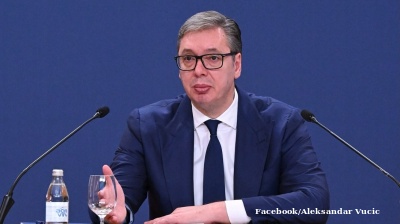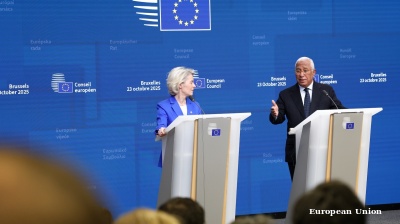The European Bank for Reconstruction and Development (EBRD) and bilateral donors under the framework of the Western Balkans Investment Framework (WBIF) will support Serbia to expand fast broadband to rural areas, announced the EBRD on its website on January 27.
An €18mn EBRD loan and a €1.7mn WBIF grant will allow Serbia to finance the design and construction of fibre broadband infrastructure in rural areas, connecting around 90,000 households and 600 schools and public institutions.
"The ultra-fast broadband access will reach about 90,000 households in rural areas and will enable a completely new perspective for the population, especially for children and youth in those areas," said Serbia's Minister of Trade, Tourism and Telecommunications Tatjana Matic. Providing a modern digital educational environment and affordable digital services will enhance local capacity and economic development, contribute to regional development and connectivity and towards alignment with European legal frameworks and our accelerated progress towards European integration."
Currently, only 69% of rural Serbian households are connected to fixed broadband, compared with 85% in urban areas. COVID-19 lockdowns around the world have demonstrated that high-speed internet is crucial to allow people to work from home, continue education at all levels, access medical and financial services or simply maintain communication with the external world.
“Being born in a rural area was identified as one of the factors for inequality of opportunity in EBRD regions, including Serbia. Creating better links – both physical and technological – between urban and rural areas helps to ensure better quality of life in rural zones and prevent the Serbian countryside brain drain," commented Zsuzsanna Hargitai, EBRD regional director for the Western Balkans.
Even before the coronavirus pandemic lack of broadband connections for rural schools had been identified as a growing problem for Serbia — one-quarter of all pupils attend a rural school and in recent years rural enrolment growth has outpaced growth in all other school locales. Without adequate high-speed internet infrastructure, rural schools and their students risk being left behind their peers in urban areas, it was stated on the EBRD website.
Tech

Russia blocking messaging apps again, sets up copycat Telegram app
Russia’s internet watchdog Roskomnadzor has been blamed for another round of internet outages in Russia, as the state sets up a Telegram messaging app clone as the Kremlin continues to take increasing control of RuNet.

Albania’s AI minister ‘pregnant’ with 83 children, PM says
AI “minister” Diella will give birth to dozens of digital parliamentary assistants for ruling party MPs.

Is Kazakhstan building a digital utopia, or a China-style surveillance state?
Many Kazakhs will tell you that officials should limit their ambitions to fixing the internet speed. Others worry that the time for joking is over.

Kia inaugurates $310mn "highly automated" automotive plant in Kazakhstan
Featuring 68 industrial robots, the plant is designed to produce up to 70,000 vehicles annually.




